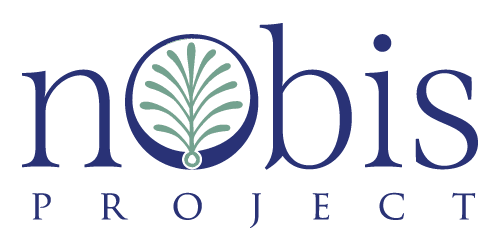By Josiah “Jazz” Watts, Nobis Project facilitator –
On February 23rd, 2020, an unarmed Black man was murdered while jogging in a neighborhood local to his home in Brunswick, GA. His name was Ahmaud Arbery and he was a Sapelo Island descendent, a son, a brother, a friend, and cousin of mine.
The last few months I have been asked by many people, from a variety of backgrounds, what do I think it will take to end the dehumanization of Black and Brown bodies in the United States? Below is a compilation of my thoughts and sharings with others.
1. Acknowledgement that there is a problem; whether it’s with the unfair racial divide in school disciplinary measures or in the areas of policing in the disproportionate amount of violence, arrests, and deaths. Examples which sit right in front of us for the past few weeks, but are there contemporarily such as Eric Garner, Alton Sterling, Mike Brown, Tamir Rice, Attatiana Jefferson; and others show that we have radical inequities within our systems of policing, housing, and healthcare; just to name a few areas.
2. Act. Schools can partner with organizations such as the Nobis Project that focus on Race, Power, and the History of Gullah Geechee in the Low Country. Organizations that do the work of antiracism. Have representatives in your schools that come from diverse backgrounds to speak to your students. Read about the history of Jane Bolin, Alice Dunnugan, Lewis Lattimer, or Susie King Taylor. Learn about someone other than just Dr. Martin Luther King, Jr.
3. Demand more from your local officials. Our IRunWithMaud committee does “action steps” weekly where we discuss what steps people can take locally to hold their public officials such as your commissioners, DAs, police officials, and others accountable to have public discussions about this very topic. But then have specific asks from those leaders; whether it’s seeking discipline for a police department, pressing a County manager, or the board of commissioners. Hold their feet to the fire with a plan. Have a plan.
4. Demand more from your schools. Learn about what your curriculum will be both parents and students and push for more diverse curriculum where you learn more about other cultures. Demand it. Parents and students. Simply put.
5. Help create a Citizen Review Board in your community, but one with teeth; one with subpoena power, proper funding, and resources. One that has power and accountability.
6. Use the power of social media. It is powerful. Wield it. Whether it’s posting, having events, forming groups..I Run With Maud is an example.
7. Talk about it. Have conversations. Be willing to be uncomfortable. Be willing to do some homework. Read: White Fragility, The Color of Law, Between the World and Me, The New Jim Crow, etc. Then actively be antiracist. Do work to dismantle systems that support these inequities.
8. Find an initiative that does the work– Nobis Project, Equal Justice Initiative, and local organizations that are actually doing the work of antiracism. Join with these groups and financially support them. In Nobis Project’s work Christen sometimes shares with educators, “as a white person, I have the choice to take a day off and not do the hard work of self-reflection and outward fighting to end centuries-old practices of racial oppression. And then I remember that people of color never get the day off from being targets of that unyielding oppression. Antiracism work is a lifelong commitment to doing the work every day.” Join me in this work. Our lives depends on it.


0 Comments